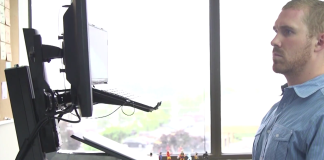Healthcare software is a main component of current medicine and an absolute necessity for the healthcare industry. The availability of diverse software options in the market is making it convenient for healthcare providers to customize their technology choices to meet specific needs and goals. The possibilities of innovation are endless in healthcare and the demands of future technologies are set to impact software development in healthcare to a great extent. So, how will the integration of artificial intelligence, precision medicine, preventative care, and other technologies in custom medical software development impact healthcare delivery? This blog will serve as a guide to understanding the new technologies that are shaping the future of healthcare software development.
Emerging Technologies in Healthcare Software Development
- Integration of AI
The world of AI is rapidly transforming, and we are witnessing some massive developments. One such development is the growing popularity of AI-based virtual assistants that give personalized health advice. Over time, other AI advancements will also influence modern medicine. AI will be able to predict disease progression and suggest the most accurate treatment options. AI will also play a huge part in drug finding, modeling interactions between possible drugs, and reducing the time it takes to develop the right medication. AI systems can scan medical photos to help diagnose illnesses like cancer more precisely and faster than traditional approaches. Predictive analytics driven by AI can also anticipate illness outbreaks and enhance hospital resource allocation. Overall, AI and machine learning in healthcare also show potential for improving patient outcomes while lowering costs through more efficient and tailored treatment.
- Continuous Development of Telehealth and Remote Patient Monitoring
As healthcare keeps on advancing, telehealth will not only be limited to video consultations. Over time, it will include remote patient monitoring, virtual therapy, and rehabilitation with augmented reality (AR) and virtual reality (VR) to facilitate surgical procedures. These cutting-edge innovations will significantly improve the quality of healthcare offered to patients. Additionally, another constructive outcome of the development of telehealth would be more convenient and contemporary treatment. This results in more patients being satisfied with their treatment options. Remote patient monitoring systems use wearable devices or sensors to capture and communicate patient data. These technologies are transforming healthcare by increasing access to medical services, particularly for those living in rural or isolated locations. They improve patient outcomes via proactive treatment of chronic illnesses and early diagnosis of health problems.
- Rise of Preventative Care
Preventative healthcare is transforming the way medical professionals approach wellness. Preventative care proposes to prevent health problems from occurring by diagnosing problems before symptoms or complications develop. This way, the chances of recovery are greatest. AI-based risk evaluations and patient-oriented health management tools are a part of preventative care. They push the patients to be more attentive to their health by actively participating in their healthcare journey. As a result, this decreases the workload of the healthcare organization while improving patient satisfaction.
- Focus on Interoperability
Smooth data transfer between healthcare IT systems is crucial and beneficial in the healthcare sector. Open-source standards and interoperability solutions help healthcare professionals get a comprehensive view of patient records, leading to improved decision-making. Better decision-making means better patient outcomes and more efficient care. Focusing on these leading-edge technologies, particularly interoperability, will be essential for the future of software development in healthcare.
- Impact of Precision Medicine
Gradually, healthcare is moving into an era where AI and data analytics are determining the outcome of medical care. Gathering crucial data and insights leads to better patient care, a reduction in costs, and a more efficient healthcare system. Precision medicine ensures that the personal genetic information of the patient is kept in mind, to result in more precise and suitable treatment plans. To achieve success in precision medicine, it is important to examine patient data holistically to develop precise treatment plans. Advances impact the development of healthcare software in genomic medicine. Integrating genomic data into EHRs and clinical processes enables healthcare practitioners to tailor treatment strategies based on an individual’s DNA. This trend advances precision medicine and the creation of more customized medical solutions.
- Cloud Transformation
The fusion of cloud technology with the healthcare industry is reshaping the future of medical care. The cloud transformation is creating a favorable landscape for healthcare professionals and patients by providing easier access to healthcare services and enhancing healthcare software development. Cloud transformation refers to the shifting of business elements such as data, applications, and services from physical storage to a cloud-based network. This results in streamlined operations, better software deployment, and real-time access to confidential data, leading to enhanced patient care. Cloud transformation is being incorporated in large hospitals as well as small clinics to efficiently manage vital data.
- Internet of Medical Things (IoMT) and Wearable Devices
The Internet of Medical Things (IoMT) is a network of linked medical equipment and sensors that collect and transmit health data in real-time. This data is used to track, diagnose, and treat medical disorders. IoMT includes wearable devices such as smartwatches and fitness trackers. They can monitor vital indications including heart rate, sleep, and activity levels. This information can help people track their health and fitness objectives. Furthermore, medical sensors built into wearable devices or linked to the body can detect anomalies or changes in health metrics. Overall, IoMT enables individuals to actively manage their health while also offering significant information to healthcare providers.
Key Takeaway
As healthcare software development services advance, it will bring about significant improvements in medical services, and it’s crucial to keep an eye out for them. Custom healthcare software development companies can provide secure and scalable solutions that give patients power and completely change the dynamics of healthcare. Healthcare organizations that begin to leverage medical software development services early on can boost their efficiency, patient care quality, and overall performance while enhancing data security and compliance. Keep exploring and staying updated with the latest health tech software developments and how they can impact your business.










